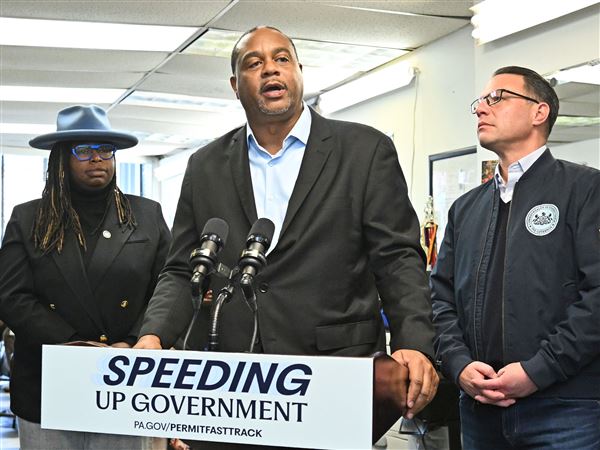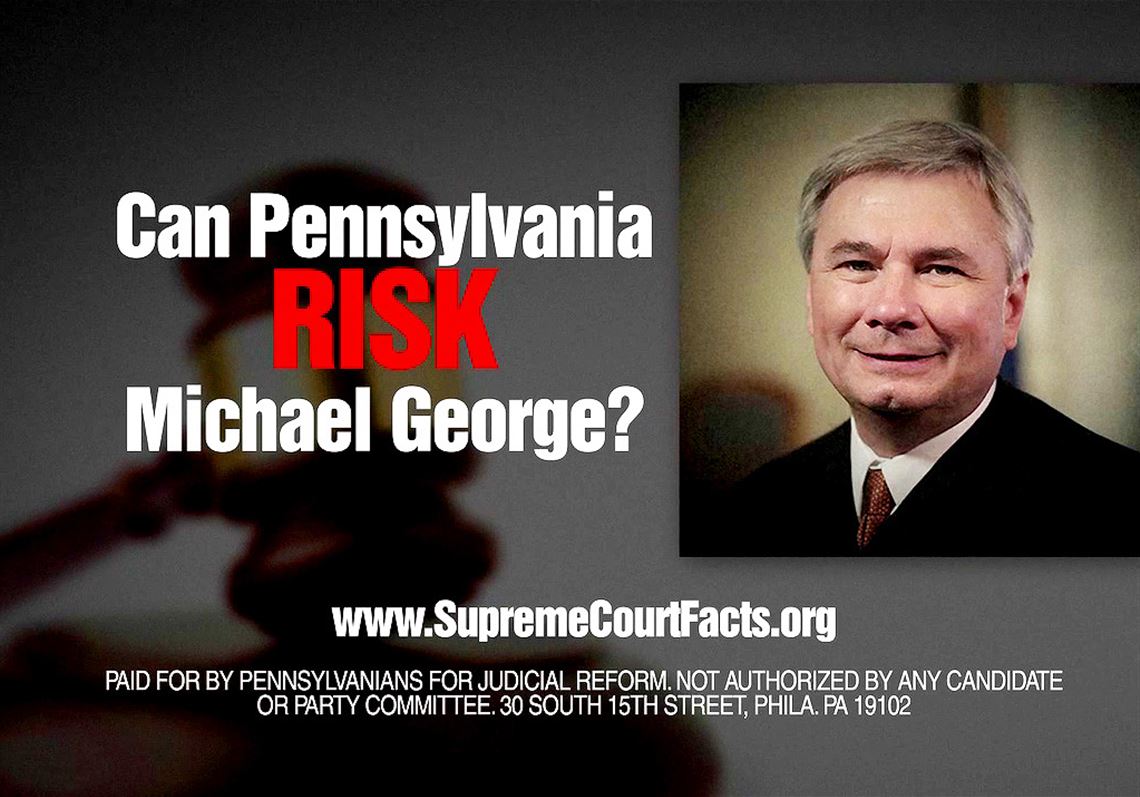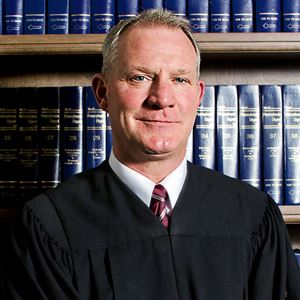It was nice while it lasted, the time when state Supreme Court candidates merely advertised themselves. But now outside money is wading in, starting with negative TV ads targeting Republicans seeking the court’s three open seats.
According to “Pennsylvanians for Judicial Reform,” Adams County President Judge Michael George “routinely handed out lenient sentences” and has “fail[ed] to protect women and children.” Superior Court Judge Judith Olson, meanwhile, is “out of touch” and backed by “the most anti-choice groups in the state.” Commonwealth Court Judge Anne Covey is accused of having “filed improper information on campaign-finance forms,” and falsely claiming authorship of “numerous” legal articles.
Republicans denounced the ads, as did watchdog groups.
“Ads like these serve no purpose other than to discourage voters from seriously evaluating judicial candidates by using scare tactics,” said Lynn A. Marks, executive director of Pennsylvanians for Modern Courts.
According to public records, the spots are being broadcast in Pittsburgh and at least two other markets, Scranton and Philadelphia.
PJR is a so-called “527 committee,” an entity that engages in political activity independent of candidates. Its chairman is listed as lobbyist Mark Singel, a onetime lieutenant governor and former chair of the state’s Democratic Party.
As of mid-September, state records say, PJR had raised $359,750. Of that, $150,000 came from a committee tied to the Philadelphia Trial Lawyers Association. The state's largest teacher's union contributed $50,000, as did a service workers’ union.
The trial lawyers group also donated at least $125,000 to each of the three Democratic candidates, who have also been endorsed by both unions: Christine Donohue, Kevin Dougherty, and David Wecht. The Democrats’ “biggest campaign donors have launched attack ads on their behalf which are full of lies,” said Megan Sweeney, a state GOP spokeswoman.
Mr. Singel did not return calls for comment Friday. Neither did either union. The lawyers’ association directed inquiries to a separate Philadelphia-area number, calls to which were not returned.
Some of the ads’ claims are true and of potential interest to voters. All three Republicans are supported by anti-abortion groups, and the ad targeting Judge Covey correctly notes she is the only candidate rated “not recommended” by the Pennsylvania Bar Association. That stems from a dispute over an attack ad she aired during a 2011 election.
The relevance or accuracy of some claims, however, was either debatable or difficult to determine by press time.
One of Judge Covey’s 2011 campaign-finance reports, for example, does list a handful of contributors in the wrong section. But such errors aren’t unusual and can be remedied with an amended report. As for the judge’s authorship of legal articles, campaign spokesman Keith Naughton noted that a PJR website, supremecourtfacts.org, provided no details about the claim. “I don’t think they want to provide that because they’ll get sued,” he said.
To demonstrate that Judge George is “routinely” lenient, PJR cites just two examples from a judicial career that began in 1999: a 2010 case in which he reportedly gave a child rapist a sentence less than the maximum, and a 2007 case in which he furloughed a prisoner who subsequently killed a woman and himself.
Without addressing the claims directly, Judge George’s campaign issued a statement noting that he’s endorsed by police unions and district attorneys: “Their faith in Mike George’s ability to protect Pennsylvania families means more than misleading ads.”
Judge Olson’s campaign did not respond to requests for comment by deadline.
“We shouldn’t have special-interest groups jumping in at the last minute trying to affect these campaigns,” said Barry Kauffman of Common Cause, a government-reform group. Mr. Kauffman said other outside spenders are rumored to be entering the race soon. “I guess we’ll see.”
Chris Potter: cpotter@post-gazette.com or 412-263-2533.
First Published: October 17, 2015, 4:00 a.m.
















